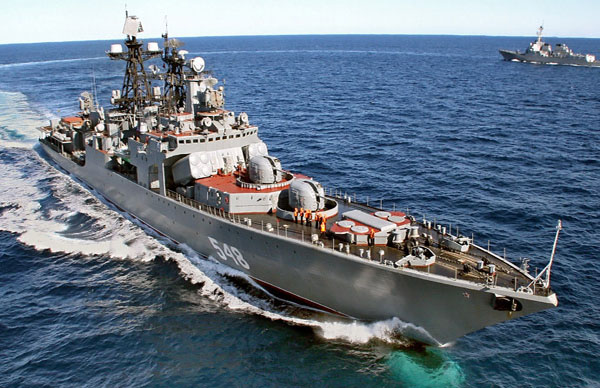

In August of 1784, the New York merchantman Empress of China arrived at Canton to open trade with China. Only a month after the Treaty of Paris was signed, ending the War for Independence, the Betsey, a merchantman from Salem, Massachusetts, became the first of six American trading vessels to be seized by Algiers in the final three months of 1783. However, with the World Wars of the twentieth century and German U-boats preying on American commerce, the United States ended up becoming involved in wars yet again. For the next century, the Atlantic was free of a major war.

When both Britain and France infringed on what we considered our neutral rights during the wars of the French Revolution and Empire, we first fought the French in the Quasi War, then the British in the War of 1812. Historically, any time that a war has threatened our ability to trade in the Atlantic, the United States has eventually entered that war. Indeed, the ability to navigate the Atlantic Ocean freely has always been crucial to U.S.

Maritime commerce has been vital to the American economy since the founding of the colonies in the seventeenth century.


 0 kommentar(er)
0 kommentar(er)
